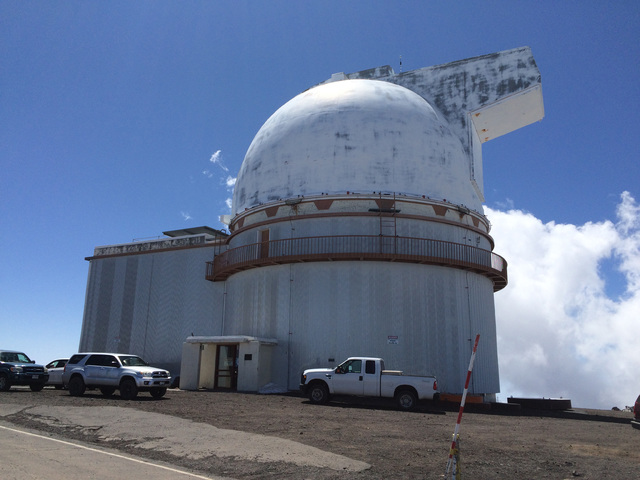Grant to boost Mauna Kea telescope’s power
HILO — The University of Hawaii’s 2.2-meter telescope isn’t the biggest observatory on Mauna Kea.
But with the help of a nearly $1 million National Science Foundation grant, it could in a few years give the Hubble Space Telescope a run for its money.
The grant, which UH announced Wednesday, will be used to build an autonomous adaptive optics system for the observatory, which became operational in 1970.
Not only will it adjust for distortion caused by the Earth’s atmosphere, but the new system — which could be operational in two years — will allow astronomers to take hundreds of high-resolution images of planets, stars and asteroids each night without operators on the summit, according to a UH press release.
“The new Robo-AO-2 will usher in a new age of high-resolution science in astronomy,” Christoph Baranec, an assistant astronomer at UH’s Institute for Astronomy, said in a written statement, “and we’re doing it with one of the oldest and smallest telescopes on Mauna Kea.”
The enhancement will allow the telescope to take some of the sharpest visible-light images from the Earth’s surface, according to UH. Those images will almost be as sharp as those taken from Hubble.
Baranec, who was awarded the grant, added the instrument will allow UH to “undertake surveys of an unprecedented number of exoplanets host stars and candidate lensed quasars, and even monitor the nightly weather of our planetary neighbors — all in high-definition color.”
The instrument will be available to UH-Hilo students and high school students through the Maunakea Scholars program.
Construction will begin in September at IFA’s Hilo facility.
The telescope also is undergoing structural repairs and renovations that is scheduled to be complete Oct. 31.
Email Tom Callis at tcallis@hawaiitribune-herald.com.


